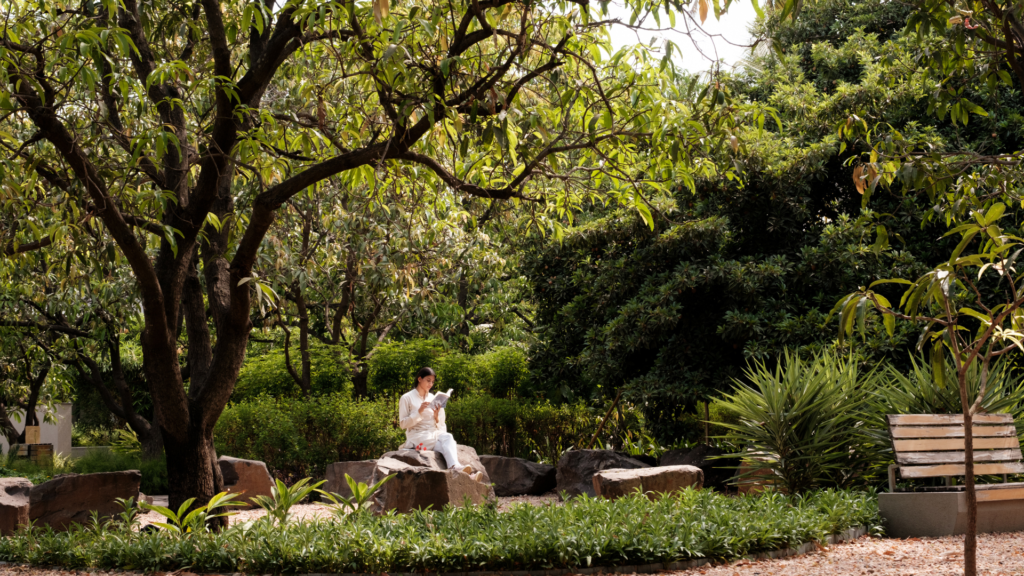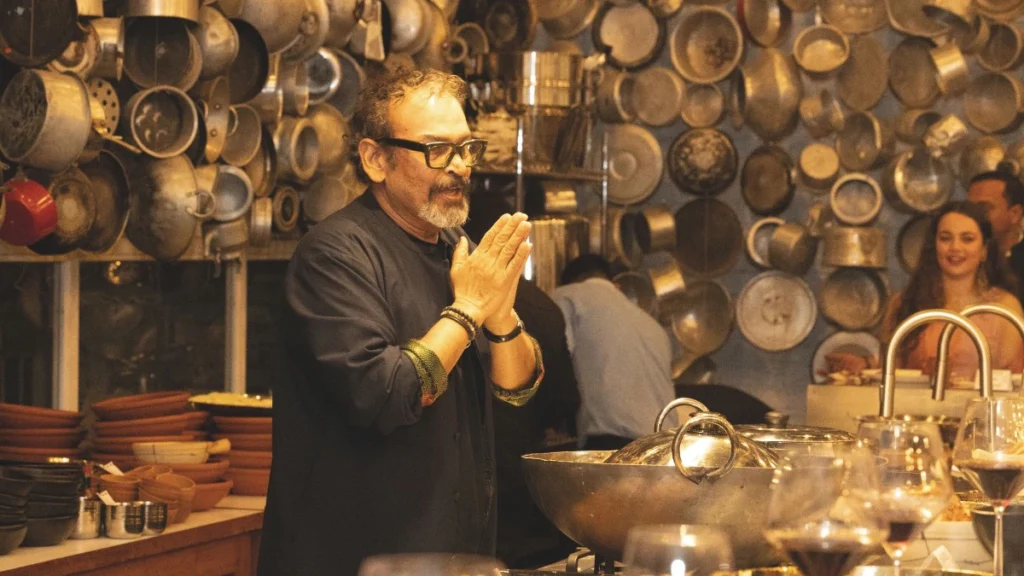‘ तर तर, तर तर, तर तर, तर तर ‘ didi goes describing the rain that followed the onset of her husband’s diseased death. Drooping skin covers her eyes so, that I have to squint my own to look into them. The Sun is scorching but her skin seems used to it. She is 60, and her heart has known only this stony porch as home.
Kumaoni is a tough language to write. The verbal dialect however is flushed with more emotion than technicality. Every piece of information is acknowledged with a ‘ होय ‘ of understanding. But when didi shares how her day ends at three in the afternoon, there’s nothing I can think of to express my condolence.
Kafra is barely visible on the road to exciting treks we all feel destined for. But it’s where the lives of many women like didi are spun. All that marks its existence is a basic green signboard about 400 steps below its inhabitants – nothing to give away the solidity of the homes built from scratch on desolate fire-prone grounds. The cluster of small houses is is built with simple craftsmanship – found warm in the winter and cool in the summer.

Women’s days here are spent making their family’s life better, except when the samuh needs attention. This group of ten women radiates a sense of power that blooms Kafda from a village into a communion. So eyes are dried off, and didi, bahu samet, walks in and finds perch on the ground. Amidst the flurry of calculations and complaints at the annual audit, she loses her sense of loss for a moment. A bowl of bhujia is passed around and her thoughts are drifted towards enjoying the bite of the day (quite literally).
In a land where livelihoods are bare minimum and ambition is based on happiness rather than achievement, women find joining hands a sacred way to get by. Dearth is ample, but contentment flows in rivers. Self help groups, thus, become a great channel to imbibe values, yes, but also to make life a little more comfortable by knowing that they’re not alone. Their is accountability, but also trust.
The women of Kumaon, like many unacknowledged parts of the world, are no different from you and me – with their fair share of gossip and longing to share a load. From a heap of hassles rises their Sun each day, as they worship it with a smile on their face. What sets them apart is the bareness of their soul. All that’s past is allowed to go, and all that’s walking towards them is embraced with open arms. Toiling is a way of life, as is asking names later and exchanging smiles first.

A documentation of experiences as encountered under the guided supervision of Mahila Umang Producers Company Ltd. Umang is a collective of self-help groups and producer members providing sustainable livelihood opportunities to thousands of women in the Himalayas. Their work has touched lives not only at the economic level, but also at the depths of women’s spirits.





Pingback: #2 Winter Memories of the Delhi I Know | Ria Gupta
Pingback: Freedom, Somewhere in Bangalore | Ria Gupta